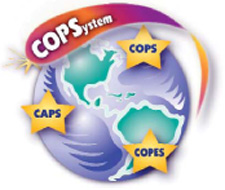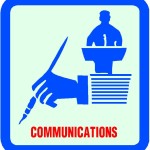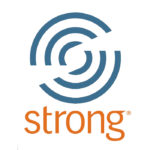There are numerous career ability tests also known as aptitude tests on the market today. Most of them are used solely for learning purposes or hidden within company hiring processes. Only a few are suitable for career purposes. Of these, most can be used for career development and selection, but few also for hiring purposes . Benefits and drawbacks of four are presented below.
APTICOM
Was the first ability career test tool I was exposed to. A game-like approach on a dedicated computer made it fun to take and eased test anxiety. It was used primarily for special needs populations. I used it as part of a grant project to help teenage mothers determine a suitable career for themselves in an attempt to encourage them to complete their schooling. Like the COPSystem, Apticom provides an ability battery interest inventory and perceived skills assessment integrating the information into a singular report that presents career recommendations. Even though Apticom is no longer produced, there are a few refurbished tools available for use in determining a new career.
GATB/Ability Profiler
Aka the General Aptitude Test Battery (GATB) was developed by the U.S. Employment Service (USES), a division of the Department of Labor following WW2. Like its correlate in the military, the ASVAB, GATB is used to identify innate abilities for job performance purposes. What began as nearly 100 tests, through factor analysis, was condensed t0 9 independent factors related to work performance. Its assessment consists of 12 tests which measure 9 abilities or aptitudes. The abilities are clustered into 3 groups: cognitive, perceptual, and psychomotor aptitudes.
In the 1980s GATB became the Ability Profiler to reduced the time required to complete and score the assessment. In the 2000 the Ability Profiler became part of O*NET, a public work and career website managed by the Department of Labor. But by 2021 it was retired due to decline in its validity given the ubiquitous nature of the test on internet sites.
You can access and download the archived materials for free here. But scoring and comprehension of the tool require a great deal of reading simply to understand its basic results. I wonder if it is still an integral component of training programs developed by government employment services for local businesses in order to maximize investments in human capital for meeting business skill needs as it once was.
CAPS (part of the COPS System 3C)*

COPSystem – Career Interest Test – Career Ability Test – Career Values Test – a 3 in 1 career test system – best ability test to find career lists and career clusters and career resource links
Is a comprehensive, multi-dimensional battery designed to measure vocationally relevant career abilities. Each of the eight ability dimensions is keyed to entry requirements for the majority of occupations in each of the 14 COPSystem Career Clusters. CAPS scores are interpreted in terms of examinees’ abilities relative to others at the same educational level and against hundreds of occupations in its 14 COPSystem Career Clusters. Examinees learn which occupational areas are most suited to present abilities and offers subsequent training for examinees are interested in pursuing related occupations.”
Best of all, it can be taken as part of its COPS3 System which includes values and interest assessments. This offers examinees the ability to target those career clusters matching all three career decision factors: innate abilities for success, interest for the happiness factor, and values for satisfaction contributions. Taking all three assessments – CAPS (for abilities), COPS (for interests) and COPES (for values) in the package (CPS3) is the best option.
Each assessment test produces its own scoring summary for each 14 career clusters in a 4 page report. Links take you directly to a long list of new career occupations for each cluster. What makes the COPS 3C System tests taken as a whole particularly useful is not just the long list of new career occupational options. Choice is the key with CPS3. Hyperlinks on each occupational title takes you directly to detailed government documents offering information on median pay, education level, job outlook, work environment, similar occupations, and so much more.
This is only new career test system that more than just encourages career exploration, it makes it readily accessible. This readily accessible format is critical for those who urgently need to gain knowledge of the job world in order to make informed, wise decisions for their first new career. Career exploration is also a necessary component for service, administrative and trades workers along with other working adults seeking new career options.
Employer use CAPS as a screening aid in the hiring process or for advancements into technical fields. It is affordable and now online making it easy to administer assessments and manage results of multiple individuals, especially when managers use the TestEts Training Dashboard.
Highlands Ability Battery (THAB)
Claims to be “the gold-standard among tools assessing human abilities or aptitudes.” As a career testing specialist with more than 20 years experience in many aspects of career industry and having worked with all of the above assessements , I wholeheartedly agree with them! Here’s why:

THAB – Highlands Ability Battery – Best Career Ability Test for Career Aptitudes and Career Roles – Only Ability test that isolates “driving” career abilities
- The Highlands Ability Battery (THAB) is a comprehensive assessment of 19 cognitive work-related abilities more than any other aptitude test available to the public.
- THAB is an objective assessment of career abilities. Subjective assessments use self-analysis methods to garner profiles into a wide range of tests including but not limited to interest, personality and values career tests. THAB, on the other hand, uses objective means to assess cognitive work-related abilities using validated online task modules.
- More information is garnered and produced from this tool than assessment whether subjective or objective. Data is gathered over 3 hours testing conducted via online convenience.
- It provides extensive, customized, in-depth 36 – 44 page ability report.
- Combinations of the 19 abilities generates content for additional reports. Choice of these depend on need. Career supplement, leadership, lawyer, ranked transferable competencies, ranked learning channels, four keys to work success are among the most popular.
- While interpretation and application of results is now available via video, examinees can choose between 1 or 2 interpretive consultations with a licensed THAB professional. The licensed THAB consultant clarifies the subtleties of its information to make it come alive to apply to individual situations and needs.
The most astounding feature of THAB is its capacity to identify “driving” abilities. Driving abilities, of which there are 6 in total, are powerfully influential over almost every part of our work. Each one of these career abilities asserts itself in our lives by unconsciously “demanding” expression for itself. Finding expression for a driving ability in a work role is the most ideal for an individual. If one fails to account for a driving ability at all, it is not uncommon for the individual to create chaos at work or in their personal life, to make inappropriate decision or solve problems in unsuitable ways, to hop from job to job, to become bored with their job, to struggle with the ability to perform a job, or to become dissatisfied, despondent and even depressed about work, career and life in general. Therefore, it is absolutely critical to take them into account when considering a new career and specifically what role you should play at work.
Finally, of all of the career tests that I offer the THAB receives the most praise from adult clients taking multiple tests for finding a new career. It offers more substantive answers to elusive and seemingly contradictory career desires and work behaviors. It provides specific reports for Adults and Students seeking new careers in addition to Leader and Lawyer reports. Best of all, it matches individual profiles against 64 ‘career roles’ or work task categories each containing lists of occupations for multiple industries. In addition, combinations of the 19 abilities results also in transferable skills in a separate report,
When used in conjunction with a combined MBTI® test and Strong Interest Inventory® report, a just few specific occupations rise to the top of one’s list. Most career seekers are overwhelmed by choice. This “BullsEye Career Test” package is without a doubt the singularly most powerful tool to narrow the list of career options to the center of the target board. It continues to reap praise by parents, students and professionals alike for its valuable career and work-related insights, me among them.
Employers use THAB for different purposes. Large trades and construction companies use it as an hiring aid for highly skilled technical and related managerial positions. Business leaders use its ‘Leadership Report’ to understand their leadership brand and identify key individuals for succession planning within their organizations. Companies use the same report to maximize the talent of managers, directors and executives. Lawyers use its ‘Lawyer Report’ to identify their ‘super strength’ for niche careers in the legal industry. Some managers are using the ‘Ability Profile Report’ to education themselves on their workforce needs and team restructuring .This is just a few ways THAB is used beyond career identification purposes.
Please compare the reports of each career ability test before making a selection. Review report samples, read detailed comparative information about each, and determine the level of investment to you in finding a new career in which you can realize success for yourself. Consider all these important factors to consider before making your career test selection to help you determine your new career. (Access* to samples is found through link attached to each career value test title.)
Other Articles to Read:








